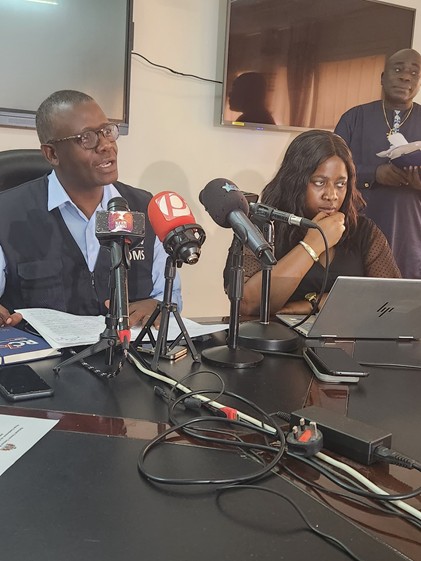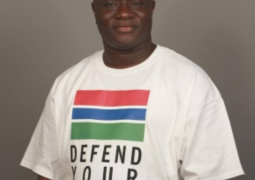
It would be recalled that World Breast Cancer Awareness Month is celebrated every October to raise awareness and promote early detection, diagnosis and treatment of breast cancer.
In light of this, he also called on government agencies, partners, communities and the media to help expand breast cancer awareness, screening and support those affected with the disease.
Giving an insight into the importance of the month, Dr. Nathan reminded that the month is a time when people come together in solidarity and to shine a light on a disease that affects thousands of lives in The Gambia and millions around the world.’
According to him, the name “Pink October” was chosen to raise global awareness of breast cancer, acknowledging that the color pink symbolises femininity and support for those affected.
“By dedicating October to breast cancer, the campaign promotes early detection, public education, and unites efforts worldwide to reduce the impact of this disease. Breast cancer is now the most common cancer globally and remains a leading cause of cancer-related deaths among women. In African region, many cases are diagnosed at late stages, when treatment becomes more difficult, and survival is lower.”
In The Gambia, he explained that while the disease primarily affects women, men are also at risk, noting that early detection is vital to saving lives.
He equally calls for regular self-examinations, clinical screening, and timely care which can significantly improve outcomes.
“It is also crucial that we address stigma and misinformation that may prevent people from seeking care.”
He pointed out that the latest GLOBOCAN data, indicates that The Gambia has an age-standardised breast cancer incidence rate of 6.9 per 100,000 women, one of the lowest in Africa.
Dr. Nathan, however, said this may reflect under-reporting or limited access to diagnostic services rather than a true low incidence.
“The age-standardized mortality rate is 4.0 per 100,000, indicating that many cases are diagnosed at advanced stages, leading to poor outcomes. These statistics underscore the urgent need for improved early detection, public awareness, and access to treatment.”
Through global initiatives, including the WHO Global Breast Cancer Initiative, he said they aim to reduce breast cancer mortality worldwide.
Read Other Articles In Headlines

Gambia College set for transformation into Teacher Training University
Apr 19, 2023, 11:41 AM




